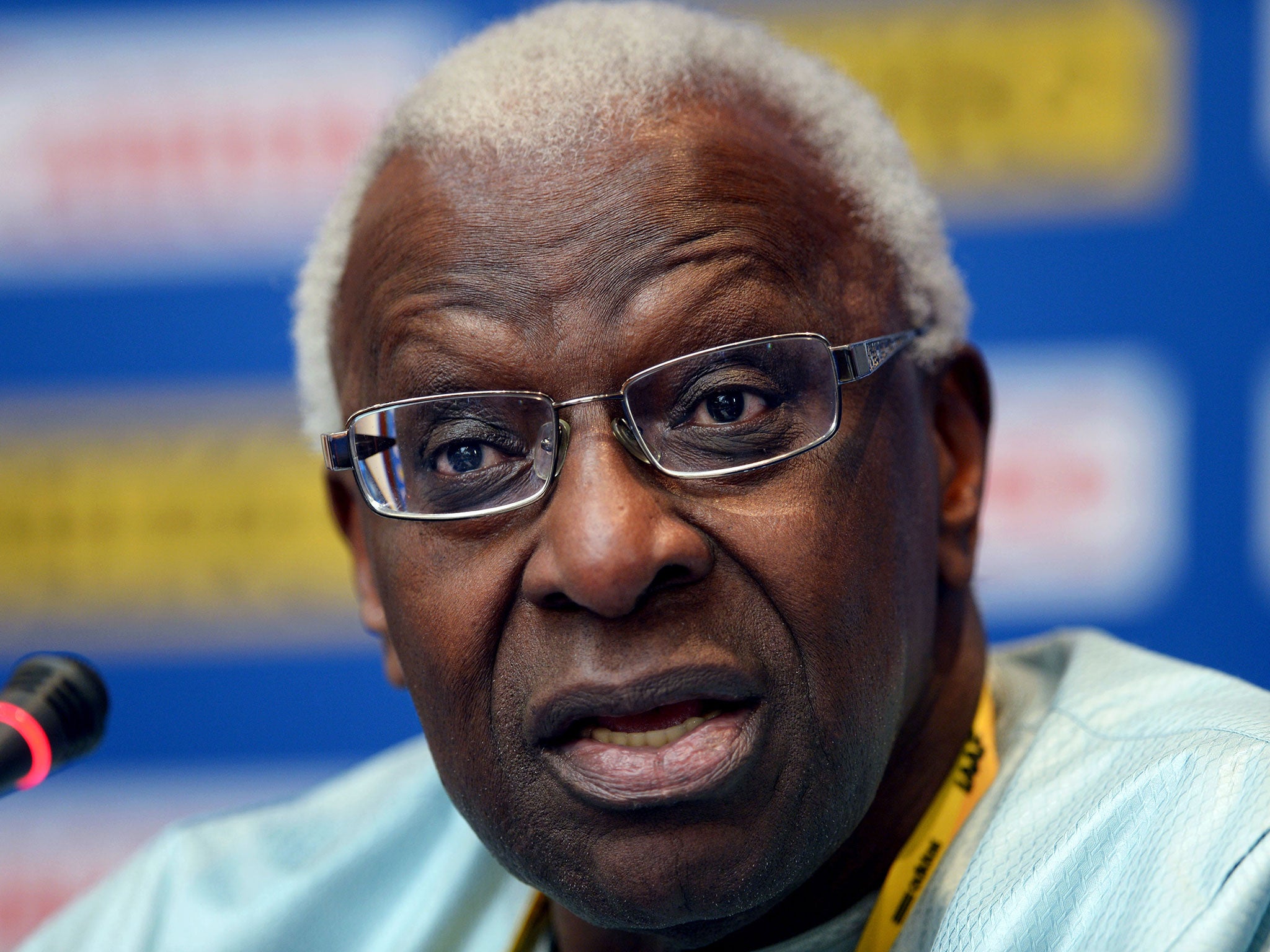Doping crisis: Allegations are a joke, insists outgoing athletics chief Lamine Diack
Diack suggests that revelations are merely an attempt by some competitors to 'redistribute' medals

In what will be one of his final acts as president of the International Association of Athletics Federations, Lamine Diack has dismissed the allegations of widespread doping in the sport as a “joke”, and defended his organisation’s role in the long-standing fight against the practice.
The IAAF had originally sought to prevent publication of the allegations made in The Sunday Times and a documentary by the German public service broadcaster ARD on the grounds that the journalists had been handed a vast database of its doping test results against its wishes.
But that failed and instead Diack, who will be stepping down later this month, to be replaced by either Lord Coe or the Ukrainian Sergey Bubka, says the reports are motivated by the timing of the imminent athletics World Championships in Beijing or, possibly, the Presidential election itself.
“They are playing with the idea of a redistribution of medals,” Diack said in Kuala Lumpur, Malaysia, where the International Olympic Committee’s annual congress is taking place. “It’s possible, if we prove with the new techniques at our disposal that someone doped. Otherwise, it’s a joke. Just three weeks before the World Championships, there is something behind [the allegations].”
The leaked database has been studied by two leading figures in the world of doping, Michael Ashenden and Robin Parisotto, whose conclusions have left the World Anti-Doping Agency “very alarmed”, according to its head, Sir Craig Reedie.
They concluded that 146 medals, including 55 golds, awarded in endurance athletics events between 2001 and 2012, had been given to people who had previously recorded “abnormal” tests.
Diack said: “There is a film and a newspaper who are asking questions. We are going to answer them all. But it’s not [just] because someone has a suspicious profile once that he has doped. When people say that there are medals to be redistributed from 2001 to 2012, it’s just a farce.
“Nobody has been destabilised, we are stronger than that. Everything that has been done in the fight against doping has been made by IAAF.”
One such request for redistribution of medals has come from Great Britain’s Jessica Ennis-Hill, who was beaten to the 2011 heptathlon world title by Russian Tatyana Chernova, who was retrospectively banned for two years in 2013 when a stored sample tested positive for a banned substance under new testing methods. The two-year period – itself an entirely arbitrary punishment – did not stretch back to the date at which she won the event.
The IAAF, in partnership with the IOC, has previously stripped athletes of medals when they have been retrospectively disciplined for doping. The American sprint and long jump champion Marion Jones is the most famous example. The IOC stores samples for 10 years. But neither it nor Wada have had access to this large IAAF database, the publication of which is already being considered to be the most serious crisis in the sport’s history.
The IOC President, Thomas Bach, said if irregular results could be shown to have affected Olympic outcomes, and the report’s authors claim it can, “the IOC will react with zero tolerance with our usual policy,” he said. “But at this time, we have nothing more than allegations. We have to respect the presumption of innocence of the athletes.”
Liz Nicholl, chief executive of UK Sport, which funds 1,300 British Olympic and Paralympic athletes, said “No matter how unpalatable the revelations are, the truth has got to be told so that the integrity of the sport is protected.
“Any athlete found guilty of a serious doping offence [is] banned from receiving the funding for life.”
Join our commenting forum
Join thought-provoking conversations, follow other Independent readers and see their replies
Comments
Bookmark popover
Removed from bookmarks